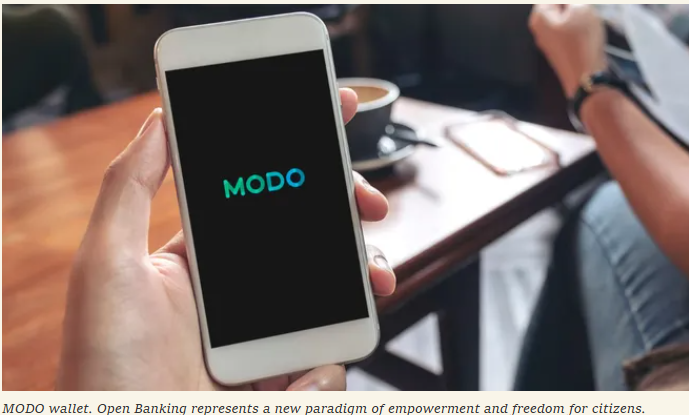Open Banking completely changes this scenario and finally highlights the true importance of information within the financial industry.

Recently, the Argentine financial scenario has been the scene of an intense dispute between MODO, the banks’ virtual wallet, and Mercado Pago, Mercado Libre’s digital wallet. Without going into the details of the accusations on both sides, my purpose here is to encourage a reflection on the true drivers of innovation that can benefit the entire financial ecosystem in Argentina.
We all know that, at the heart of this dispute, lies the issue of competition, a vital element for innovation in the financial sector. The emergence of the concept of Open Banking is an example of this dynamic. Not only does this system reiterate that citizens own their data, but it also gives them the freedom to choose when and with whom to share it. This autonomy is crucial to unleashing innovative potential in the financial sector, enabling an environment where new ideas and solutions can thrive for the benefit of all.
In a traditional financial system, a customer’s information is available only at the financial institution with which they have a direct relationship, creating a dynamic of dependency. In this context, there is a strong incentive for other organizations, which do not possess such information, to refrain from offering products or services, or to do so on less advantageous terms, as a matter of prudence. At the same time, the institution that already knows the customer does not feel the need to improve its offerings, given the lack of direct competition.
Open Banking completely changes this scenario and finally highlights the true importance of information within the financial industry. When customer data becomes accessible (with their permission) to various institutions, it creates an environment of healthy competition. Banks and fintechs are driven to constantly innovate and improve their offerings and services to attract and retain customers. As a result, we will have a market with financial products that are more accessible, innovative and adapted to people’s real needs.
In addition, the freedom to share information breaks down barriers to entry for new entrants to the financial market, incentivizing innovation and the creation of new services and products that can transform citizens’ financial lives.
Therefore, as the debate between MODO and Mercado Pago develops, it is essential to recognize that we already have in our hands the solution to foster a truly competitive and innovative financial market: Open Banking. Now, it is a matter of adopting and implementing this system effectively, ensuring that all stakeholders can take advantage of the opportunities it offers.
For Open Banking to become an effective reality in Argentina, centralized coordination is essential, as in Brazil, where the Central Bank of Brazil (BCB) acts as a regulatory body, and in the United Kingdom, regulated by the Financial Conduct Authority (FCA). This centralization is crucial to ensure fair and open competition.
Regardless of the authority, it is essential that it establishes rigorous standards for interoperability, data security, privacy, consumer rights and obligations of financial institutions in a transparent and effective manner.
Regulatory incentives for companies that proactively adopt these principles are also recommended, promoting a faster and more effective transition for the entire financial sector. This regulatory change would align Argentina with models already implemented in regions such as the European Union, the U.S., and Japan.
Open Banking represents a new paradigm of empowerment and freedom for citizens. In an increasingly digital and connected world, it is essential to ensure that individuals can control their own information and ensure that everyone has an equal opportunity to access fair and competitive financial services. It’s time to embrace the financial future that Open Banking promises, ensuring a more open and innovative market for all.
Founder and CEO of N5, a software company for the financial industry. Economist with more than 20 years of experience.

